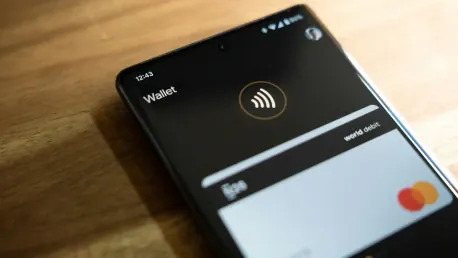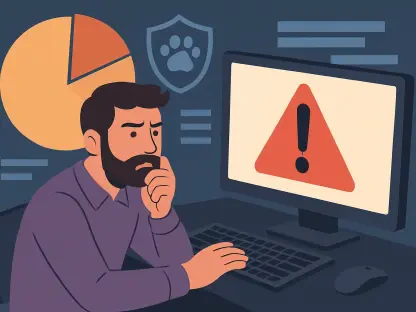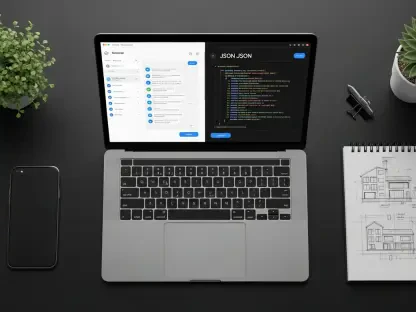Digital wallets have increasingly integrated into our daily lives, redefining convenience and security in an era dominated by technological innovation. Google Wallet recently made headway in this evolving landscape by incorporating California’s digital driver’s license into its suite of offerings. This strategic enhancement marks a significant step in Google’s broader strategy to amplify the adoption of digital IDs and make its digital wallet an indispensable tool for users. This move not only demonstrates Google’s commitment to expanding the utility of its wallet but also showcases the potential for a future where digital IDs become more commonplace.
The integration of state-specific digital IDs into mobile wallets like Google Wallet and Apple Wallet is shaping up to be a crucial undertaking. These advancements continuously redefine how individuals secure and access their important identification documents. With the addition of California’s digital driver’s license to Google Wallet, questions arise about the broader implications for user convenience, state-level cooperation, and competition between these tech giants. As digital wallets evolve, their acceptance and utility in daily life become paramount, driven by a nuanced interplay of technological advancements and strategic partnerships.
Expanding Digital ID Program
Google’s digital ID program has been steadily gaining momentum, focusing on integrating state-issued IDs into its mobile wallet. With California joining the list, Google Wallet now supports digital IDs from five states: Arizona, California, Colorado, Georgia, and Maryland. This expansion is noteworthy, considering California’s large population and its influence on digital trends.
California’s inclusion in Google’s digital ID program underscores a strategic collaboration that promises to streamline the adoption process for both state and residents. The significance lies not just in adding another state to the roster but in the particular context of California, which had previously pursued its own DMV Wallet app. The alliance reflects a mutual recognition of the benefits that such technology can offer in terms of convenience and efficacy. Initially, the pilot program will be accessible to 1.5 million Californians, setting a precedent for potential wider implementation. The enthusiasm from these early adopters is likely to provoke a domino effect, leading to broader acceptance of digital IDs.
Overcoming Implementation Challenges
Despite the promising advancements, the journey toward widespread adoption of digital IDs is not without its challenges. One major hurdle is the current requirement for users to carry a physical ID alongside their digital version due to legal constraints. This limitation underscores the ongoing need for regulatory changes to fully leverage the potential of digital IDs.
As of now, digital IDs mostly find acceptance at TSA checkpoints and specific restaurants, reflecting a nascent stage of widespread utility. This partial implementation highlights the regulatory and infrastructural modifications needed for broader acceptance. For digital IDs to transition from a convenient add-on to a viable replacement for physical IDs, expansion must extend across various institutions and states. The integration of digital IDs into more everyday scenarios, such as banking, healthcare, and general retail, is crucial to realizing their full potential.
Competitive Dynamics with Apple Wallet
Google Wallet’s recent enhancements position it more competitively against Apple Wallet, which traditionally held a lead in supporting state IDs and accepted locations. Both digital wallets now support a similar range of state IDs, leveling the playing field and marking significant progress for Google Wallet.
A key differentiator for Google Wallet is its ability to create digital passes from virtually any physical card or ticket using text recognition and AI technology. This innovative feature enables users to scan and convert their physical cards into digital passes easily, significantly enhancing the wallet’s versatility. Alongside this, Google Wallet has introduced Private Passes for secure storage of sensitive cards, further boosting its appeal to users who prioritize security and utility. In contrast to Apple Wallet, this unique feature set positions Google Wallet as a more flexible option, capable of accommodating a broader array of digital pass needs.
Impact on User Preferences
As Google and Apple continue to enhance their digital wallets, user preferences are bound to be influenced by the added functionalities. Google Wallet’s ability to accommodate a wide range of digital passes and its secure storage options may appeal to users seeking a more comprehensive digital wallet solution.
However, it’s improbable that users will switch between iOS and Android ecosystems solely based on the features of the wallet apps. The broader ecosystems and personal inclinations tied to these platforms play a significant role in user decisions. Nevertheless, the continuous improvements in digital wallet capabilities reflect a keen focus on user convenience and security from both companies. This focus on enhancing user experience in digital wallet apps may not necessitate drastic changes in user ecosystem preferences, but it certainly elevates the competitive dynamics and encourages innovation within each platform.
Strategic Partnerships and Broader Adoption
The collaboration between state governments and tech companies is a critical component in the successful implementation and adoption of digital IDs. Google Wallet’s inclusion of California is a testimony to the growing partnership dynamics where state policies and technological advancements are aligning to offer more convenient solutions for residents.
Governor Gavin Newsom’s endorsement of the mobile driver’s license pilot signifies official support and validates the initiative’s importance for Californian residents. Such endorsements are vital in bolstering public awareness and acceptance, facilitating smoother integration of digital IDs into the everyday lives of users. Governor Newsom emphasized that this initiative makes it easier for Californians to maintain a digital driver’s license and ID, promoting convenience and encouraging wider adoption. This endorsement underscores the partnership’s importance, highlighting the synergies achieved when state-level initiatives align with technological capabilities.
Future Prospects and Technological Advancements
Digital wallets have become an integral part of everyday life, redefining convenience and security in our tech-driven era. Google Wallet has made notable progress by incorporating California’s digital driver’s license into its platform. This significant enhancement aligns with Google’s broader objective to boost digital IDs’ adoption and make Google Wallet indispensable for users. This initiative not only highlights Google’s commitment to expanding its wallet’s utility but also signals the potential for a future where digital IDs are widely accepted.
The integration of state-specific digital IDs in mobile wallets, including Google Wallet and Apple Wallet, is a crucial development. These enhancements continuously reshape how individuals secure and access important identification documents. With the addition of California’s digital driver’s license to Google Wallet, questions emerge about the broader implications for user convenience, state cooperation, and competition between tech giants. As digital wallets evolve, their acceptance and utility in daily life become crucial, driven by new technological advancements and strategic partnerships.









